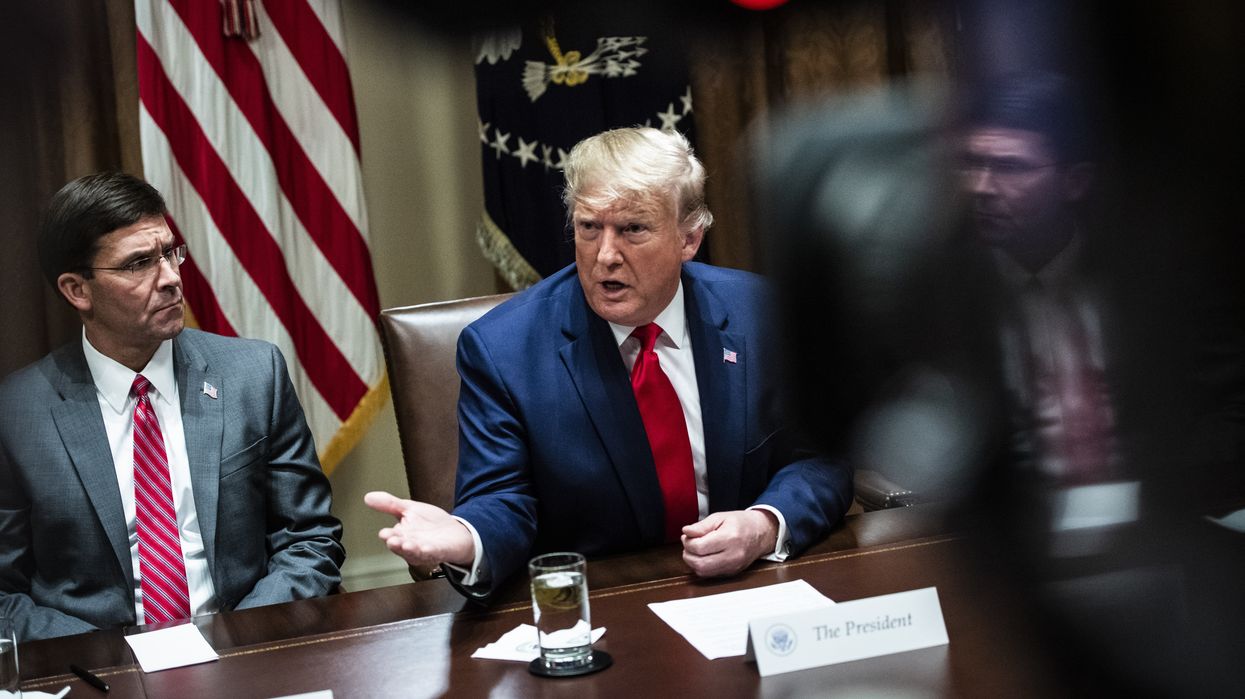Cooper is the author of “ How America Works … and Why it Doesn’t. ”
If Donald Trump wins the presidential election, many worry that America will descend into dark times.
Washington Post columnist Ishaan Tharoor, for example, detailed myriad ways he thinks Trump would subvert American democracy:
“As my colleagues have reported over the past year, Trump has made clear his stark, authoritarian vision for a potential second term. He would embark on a wholesale purge of the federal bureaucracy, weaponize the Justice Department to explicitly go after his political opponents (something he claims is being done to him), stack government agencies across the board with political appointees prescreened as ideological Trump loyalists, and dole out pardons to myriad officials and apparatchiks as incentives to do his bidding or stay loyal.”
These concerns don’t withstand scrutiny. If Trump wins, American democracy will undergo a severe stress test. Yet again. But it won’t plunge into dictatorship, authoritarianism or fascism. These are coherent governmental structures. Instead, if Trump wins, America will have an incoherent and volatile mix of some government institutions that function democratically and some that don’t.
The fundamental problem with predictions like Tharoor’s is that Trump can’t actually accomplish these things. The federal bureaucracy can’t be “purged” by the sitting president. Valid federal legislation authorizes and funds government agencies — so the courts won’t allow them to be gutted by executive order. Republican presidents have long tried to shrink the administrative state. They’ve failed every time. Even if the federal bureaucracy were halved it would still be huge.
The Justice Department, moreover, didn’t go after Trump’s enemies while he was president. To the contrary, DOJ lawyers rejected Trump’s demands to prosecute Barack Obama, Joe Biden, Hillary Clinton, James Comey, Andrew McCabe and others. The DOJ did, however, prosecute many of Trump's friends, like Roger Stone, Michael Flynn, Steve Bannon, Paul Manafort and Tom Barrack. And of course the Justice Department brought two major cases against Trump himself. To imprison his enemies, as Tharoor warns about, Trump would need grand juries to indict on his command, courts to illicitly rule in his favor and juries to render his chosen verdicts. There’s no reason to think any of those things could happen.
The Senate, furthermore, still has to confirm all executive-level presidential appointments. And pardons only apply to specific acts and offer no protection under state law or for future activity. Just look at Bannon, who was first pardoned by Trump for one thing and then later convicted of something else.
Moreover, Trump wouldn’t control most government activity — at the federal, state or local level. If the Democrats take the House in November, they will oppose Trump at every turn. We should expect Trump’s third impeachment — for something or other — to commence promptly. Democratic-run state and local governments likewise would fight back against Trump's initiatives, just like they did previously.
The most serious domestic risk America faces if Trump wins is that the military starts doing his bidding. But there’s no reason to expect this to happen. He has long had strained relations with military leaders, including secretaries of defense (John Mattis and Mark Esper) and Chairman of the Joint Chiefs of Staff Mark Milley. The military has steadfastly refused to obey Trump’s improper orders.
This isn’t to say a second Trump presidency wouldn’t be dangerous. It would be. But the biggest concerns would reside where the American electorate often doesn't bother to focus: international affairs. This is where American presidents have the fewest checks on their power and the most potential to do harm. The international community is desperate for sober and rational American leadership — the opposite of Trump-style diplomacy.
If Donald Trump wins the election there will be plenty to worry about, to be sure. But there will also be many doomful predictions that don’t come true.




















Trump & Hegseth gave Mark Kelly a huge 2028 gift